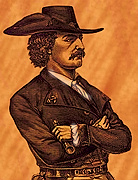|
Replace all instances of TKaM in syllabi with Intruder in the Dust imo. Or at least have both of em
|
|
|
|

|
| # ? Apr 24, 2024 20:16 |
|
Normal Adult Human posted:read something happened by joseph heller. Well I loved Catch 22, so it's not like you have to try to hard to convince me. Then again with all the conversation around it currently, maybe I should try To Kill A Mockingbird so I can be a part of it.
|
|
|
|
OscarDiggs posted:Well I loved Catch 22, so it's not like you have to try to hard to convince me. I would recommend reading something like Native Son or A Lesson Before Dying or The Good Lord Bird along with it Its hard to understand the hegemonic white perspective taken in most fiction about race without reading fiction that critiques and resists it
|
|
|
|
.
whatevz fucked around with this message at 03:33 on Apr 25, 2022 |
|
|
|
Mel Mudkiper posted:I would recommend reading something like Native Son or A Lesson Before Dying or The Good Lord Bird along with it Hmm. I did want to take a tour back to Russia at some point... Okay, tentative plan is: Something Happened by Joseph Heller. Heart of a Dog by Mikhail Bulgakov. +1 Russian Book, Maybe. To Kill a Mockingbird by Harper Lee. One of the following: Native Son or A Lesson Before Dying or The Good Lord Bird. Unless someone has a good argument or reason against this, this is what I'll go with.
|
|
|
|
.
whatevz fucked around with this message at 03:32 on Apr 25, 2022 |
|
|
|
pleasecallmechrist posted:I'm glad that stance on historical context has been cleared up but that doesn't change the fact that the idea that "taking the historical realities of racism and applying the narrative consequence of them to their effect on the white protagonists, the novel devalues Tom Robinson." is dismissive and one dimensional. It completely disregards the effects of historical realities and narrative consequences have on all who encounter them from whatever proximity, in this story a white family. We can completely remove historical context but in the context of black and white relations there are just that, two sides and then all the ideological/individual variance inside of those categories. You say it is for the sake of a white audience, untrue. It a story told from specific characters who are white which is entirely acceptable permissible in narratives involving blacks and whites. American fiction is ripe with the problematic trend of white people being enlightened to how bad racism is by an arms length experience with it. You cannot look at Mockingbird in a vacuum, its exists concurrently with all other fiction on the topic, and its perspective on that topic reinforces the fundamental status quo American society has created about race. pleasecallmechrist posted:And frankly even running with the idea that he is not a "developed person whose life has consequence outside of those effects" is not problematic because there can be distance between cause and effect. His trial's effect on them doesn't reduce his life, it is just one of the consequences of it. Your whole theory revolves around reducing people to groups and disregards individual consequence. The consequences of the trial on Scout and Atticus in a TKOM with a white prisoner would be no different. It would just not include the realities and injustice of racism. Regardless the prisoner's life would not be and is not reduced. The whole point is that by having Atticus defend an innocent black man and fail, the novel is expecting us to admire the nobility of what Atticus attempted and the realization for Scout about how unfair the world is. It reinforces the white savior mythos by depicting a failure in a racist system as noble because it was the right thing to do. It completely discounts the hopeless and futility of the whole endeavor from the perspective of the people most affected by it. A story of a black man being killed by racism should not be a story of white martyrdom.
|
|
|
|
Mel's critique there brings to mind Daddy Was a Number Runner by Louise Meriwether as well.
|
|
|
|
Ben Nevis posted:Mel's critique there brings to mind Daddy Was a Number Runner by Louise Meriwether as well. For some reason never heard of this but I am gonna grab it
|
|
|
|
.
whatevz fucked around with this message at 03:32 on Apr 25, 2022 |
|
|
|
pleasecallmechrist posted:This response is another example of where group politics and theory as truth hinders intellectual discussion and engagement. When you says " exists concurrently with all other fiction on the topic, and its perspective on that topic reinforces the fundamental status quo American society has created about race.", that view requires several suppositions based solely on generality. If you want to argue the status quo of the American narrative on race is not a sort of "I learned to be your friend" reconciliation that prioritizes the personal growth of the white protagonist, you are more than welcome to scale that wall quote:It is ignorant to suggest that because an experience is "arms-length" then it devalues the "other" or the experience.This is perfectly evidence by something you, Mel, would espouse and that is to read cultures and sexes or whatever beyond one's norm, which I wholeheartedly agree with. But do you not see how a straight white man reading a Roxanne Gay, a radical feminist black lesbian, book is in fact the exact arms length experience that you are critiquing but would still find it valuable. So if this arms length is as close as we can get outside of inhabiting others in reality, it is destructive to consider it problematic in fiction where an author has creative freedom to try and understand and empathize and tell a story involving someone who is different than themselves. It is not surprising or insightful that a majority white country offers more perspectives on a topic from the white side. Doesn't mean they did it well or got it right but to believe the attempt at empathy contributes to some generalized status quo defined solely by who is most wronged is to disregard entire sections of population and experience and to demand guilt and wrongdoing and finger-pointing from any narrative to be deemed worthy. I think you misunderstood. The reader is not the white person kept at arms length. The characters are the ones at arms length. The life and death of Tom Robinson ultimately only matter to the Finch family in how it makes them feel. The ultimate consequences of racism and the failures of justice are kept at arms length from the protagonists because they are able to wholly avoid any material consequences for the Robinson's death, as opposed to Robinson or his family. In this, the black man's life is reduced to a lesson for white people, as there is no narrated consequence of value in the text other than "white person learns a lesson". Even the most material consequence, in the attack of Ewell on Scout and her brother, is less a result of the fate of Tom Robinson than the humiliation of another white person. quote:An example that might help clarify is it would be morally wrong for someone who was not in a concentration camp to pretend that they were. But by fiction acknowledging it is fiction it licenses an author to try to imagine the effects, the causes, the audacity, the inhumanity etc and so writing about a concentration camp might become a worthwhile endeavor even though it is at arms length. But that is not what is happening. A white author is not imagining what it must be like to experience racism. A white author is wondering what it is like to be white and find out racism is bad.
|
|
|
|
Perhaps I'm confused, but you seem to be talking about the author a lot. Is it a difference between the Author, and an author? Or are you breaking your own rule?
|
|
|
|
Duck Rodgers posted:Perhaps I'm confused, but you seem to be talking about the author a lot. Is it a difference between the Author, and an author? Or are you breaking your own rule? its a fair question, lemme see if I can phrase this so it makes sense When it comes to the novel's meaning, there is no author. Meaning, there is no objective meaning behind the story that is determined by the conscious construction of an authorial figure. The text speaks for itself and the reader is the interpreter of meaning. However, as a social object, the book has an author and the influence of the author's subject positioning on the text is valid to consider. In short, the author doesn't tell us what the book means, but we can gain meaning from the book by considering the author. So, in the case of this book, what Harper Lee "meant" or "intended" the book to mean is irrelevant. However, when considering the themes and perspective of the novel, it is not irrelevant to consider the subject positioning of Harper Lee herself.
|
|
|
|
.
whatevz fucked around with this message at 03:30 on Apr 25, 2022 |
|
|
|
.
whatevz fucked around with this message at 03:30 on Apr 25, 2022 |
|
|
|
What Mel is arguing is that a book can only be adequately "against racism" if it takes on a marginalized racial perspective directly. Maybe Harper Lee should have kept that in mind when writing about something that literally happened in her childhood.
|
|
|
|
.
whatevz fucked around with this message at 03:29 on Apr 25, 2022 |
|
|
|
Don't misunderstand me; I think that turning efforts against racism, particularly one as massively successful as To Kill a Mockingbird, into a wokeness contest is counterproductive.
Sham bam bamina! fucked around with this message at 04:21 on Jan 10, 2019 |
|
|
|
Sham bam bamina! posted:What Mel is arguing is that a book can only be adequately "against racism" if it takes on a marginalized racial perspective directly. Maybe Harper Lee should have kept that in mind when writing about something that literally happened in her childhood. Sham bam bamina! posted:Don't misunderstand me; I think that turning efforts against racism, particularly one as massively successful as To Kill a Mockingbird, into a wokeness contest is counterproductive. I am not arguing that books that are against racism can only be written from marginalized perspectives, or that books against racism should be seen as wokeness contests. Instead, I am arguing that even books which are well-meaning are still both artifacts both of their era and the subject positioning, and can and should be interpreted in that way. A book is both text and totem. Take for instance Huck Finn. While it was written with, historically, a deeply progressive depiction of blackness, it cannot be denied that Jim is still ultimately a de-humanized and agency-free counterpart to the proactive white protagonist. Even a book written with the intent of speaking against racism is not inoculated to racism. Giving a pass to reductive depictions of race because they are well-meaning is fundamentally intellectually and socially toxic. Frankly you should know better than to resort to such obvious and reductive attempts to distract from criticism. I am disappointed in you. pleasecallmechrist posted:Change that to "The life and death of Tom Robinson ultimately matters to the Finch family because of its effect on them" and you have a true statement that doesn't warrant controversy. There is nothing wrong with that because the story is about them in the light of the trial and it's consequences on them whatever they may be. You are literally dismissing character development and ideological change/maturity, essential parts of fiction and existence, because the lawyer wasn't lynched for his support of the black guy. You are critiquing a sense of nobility in white messianic martyrdom while essentially calling for true martyrdom to satisfy authenticity. There is something wrong with that when its placed within the greater social dialog of race and progress. Whiteness has a vested interest in preserving the power structures that keep it the hegemonic social force in America. To that extent, whiteness defends itself through social narratives in which personal growth for white characters is prioritized over material growth for those oppressed. I am not arguing the Finch's should have been lynched, but I am arguing that ultimately the life of Tom Robinson has no value other than the effect it has on the white family that defended him. Even if written from the perspective of a white child, that tunnel vision is not only well placed in the tropes of racial discourse that benefit whiteness, but ultimately a weakness to the story itself. pleasecallmechrist posted:what Mel is really trying to say is the author doesn't matter except to point out whether they are a rich poor man woman straight queer white black etc so you can find all the gotchas in the power structure of oppression. His whole idea is a theory called intersectionality. It's group think and it's lazy bullshit that completely neglects individuals and individual experience ironically reducing them to groups. Hrm yes what a meaningful and well-read critique of intersectionality that certainly didn't come from a youtube video of a guy standing in front of a wall of video games. Your summary of intersectionality is matched in its ignorance only by its belligerence.
|
|
|
|
Mel Mudkiper posted:I am not arguing that books that are against racism can only be written from marginalized perspectives, or that books against racism should be seen as wokeness contests.
|
|
|
|
Sham bam bamina! posted:Your entire objection to the book is that it's centered on the white character's perspective instead of the black one's. No, my objection is that the novel's attempts to deal with race ultimately fall flat because despite being well-meaning, the text still treats black humanity in a way that is reductive. I am not asking the novel to be written from the perspective of someone other than scout, I am asking the text to be more thoughtful in its attempts to humanize its black characters.
|
|
|
|
You know what, that's a fair point. I apologize for misunderstanding you.
|
|
|
|
.
whatevz fucked around with this message at 03:29 on Apr 25, 2022 |
|
|
|
Sham bam bamina! posted:You know what, that's a fair point. I apologize for misunderstanding you. It's cool, I get a bit heated myself
|
|
|
|
pleasecallmechrist posted:See quote. Without hysterical unquestioning zealotry in this, intersectionality is nothing but oversimplified blame games that can be described in totem by hyperbole and buzzwords.You have shown it for the dreg ideology it is.
|
|
|
|
pleasecallmechrist posted:See quote. Without hysterical unquestioning zealotry in this, intersectionality is nothing but oversimplified blame games that can be described in totem by hyperbole and buzzwords.You have shown it for the dreg ideology it is. I am thrilled you have exposed yourself as lazy and dishonest so that I no longer have to waste the energy treating you seriously Sham bam bamina! posted:Those are all just varyingly specific words for "power", which is almost tautologically obvious as the basis of human social organization. There is a very specific strain of aggressive pedant that tries to argue intersectionality breaks people into groups instead of just analyzing the already existing power dynamics between socially constructed groups. Its a slightly more eloquent way of saying "racism wasn't a problem until people started complaining about racism." Mel Mudkiper fucked around with this message at 06:08 on Jan 10, 2019 |
|
|
Mel Mudkiper posted:Upon reflection, its interesting how Jan and Max from Native Son are very effective critiques of the arrogance behind the portrayal of Atticus and Scout a full decade before the book it was written making me realize its been way too long since I read Native Son, should do again
|
|
|
|
pleasecallmechrist posted:This response is another example of where group politics and theory as truth hinders intellectual discussion and engagement. STFU
|
|
|
|
|
Mel Mudkiper posted:I am disappointed in you. lol
|
|
|
|
Yeah perhaps a bit melodramatic but it was a frustrating statement
|
|
|
|
Mel Mudkiper posted:As I said before, your critique misses the point so much that I am not sure how to respond to it without taking you back to the basics of critical theory, but hey, I will try it seems to me as though one could make the point that effectively communicating the nastiness of racism is most valuable when it communicates to racists, at least those that may be driven to reconsider such as the likely audience for your typical dixieland novel
|
|
|
|
V. Illych L. posted:it seems to me as though one could make the point that effectively communicating the nastiness of racism is most valuable when it communicates to racists, at least those that may be driven to reconsider such as the likely audience for your typical dixieland novel this is part of what I mean by the great racial myth in American culture. It is the idea that racism will be solved by making racists stop being racists and not by empowering disenfranchised communities. Acting like the goal should be the conversion of racist whites is meant to preserve the hegemonic cultural power of whiteness because the more effective alternative would remove whiteness from its pedestal. Racism will not be resolved by a conversion campaign launched to convert those already in power, but by removing the systems that keep them in power Fiction that appeals to white guilt over black empowerment is counter revolutionary Mel Mudkiper fucked around with this message at 17:00 on Jan 10, 2019 |
|
|
|
uh, getting the feeling that you're being a little all-or-nothing about this i put it to you that minimising reactionary opposition to such empowering makes it easier to accomplish
|
|
|
|
V. Illych L. posted:uh, getting the feeling that you're being a little all-or-nothing about this Certainly, but that is missing the point. The reason why I am framing my criticism so harshly is because the trope has been normalized and must be de-centered from the cultural conversation. The issue is not that appeals to white guilt cannot be even marginally effective, its that the white guilt appeal has been fossilized as the norm of racial narratives. The problem is that we have raised the "white person learns racism is bad" narrative as the central narrative of racial reconciliation and primarily because it is the narrative which least endangers white hegemony. I am not saying no book can or should focus on a white person's growth, I am saying that our culture privileges these stories as the norm because they are the least dangerous to the status quo and that we should challenge this rather than just accept it.
|
|
|
|
I'm not sure that anyone reads TKaM or other similar books and thinks about how they're part of a large system of institutional racism. I mean, "Maybe I should be nicer to the valet" or whatever is a beneficial realization, but not really the sort that drives any change.
|
|
|
|
Mel Mudkiper posted:Certainly, but that is missing the point. The reason why I am framing my criticism so harshly is because the trope has been normalized and must be de-centered from the cultural conversation. The issue is not that appeals to white guilt cannot be even marginally effective, its that the white guilt appeal has been fossilized as the norm of racial narratives. The problem is that we have raised the "white person learns racism is bad" narrative as the central narrative of racial reconciliation and primarily because it is the narrative which least endangers white hegemony. but this doesn't seem like a critique of the book as it stands, it seems like a sort of meta-critique of the society which values such books idk it feels a little unfair to say "the premise of this book is bad" when it's really, well, not, it's just not what one might justifiably prefer Ben Nevis posted:I'm not sure that anyone reads TKaM or other similar books and thinks about how they're part of a large system of institutional racism. I mean, "Maybe I should be nicer to the valet" or whatever is a beneficial realization, but not really the sort that drives any change. iirc TKaM specifically is occasionally credited with opening people's eyes to how hosed up the american legal system is re: racism but i cannot find any quotes to back this up so eh
|
|
|
|
V. Illych L. posted:but this doesn't seem like a critique of the book as it stands, it seems like a sort of meta-critique of the society which values such books Its not possible to critique the book from a political or sociological perspective without examining the place of the text within society
|
|
|
|
Mel Mudkiper posted:its a fair question, lemme see if I can phrase this so it makes sense I actually don't disagree; I'm all for reader-response theories of meaning, but I think it's worth being up front that this isn't a consensus. There's been 100+ years of smart people getting really upset at each other over what texts "mean," and just because we're living at a time that reader-response is trendy doesn't mean you can say "there is no objective meaning behind the story" (super super debatable; we can talk about it) or that "the author doesn't tell us what the book means" (also super controversial).
|
|
|
|
I'm reading a text at the moment, where if you squint a bit at the theory, you can imagine how the author doesn't even really know what their book is about. Which is definitely something I can buy into.
|
|
|
|

|
| # ? Apr 24, 2024 20:16 |
|
suspendedreason posted:I actually don't disagree; I'm all for reader-response theories of meaning, but I think it's worth being up front that this isn't a consensus. There's been 100+ years of smart people getting really upset at each other over what texts "mean," and just because we're living at a time that reader-response is trendy doesn't mean you can say "there is no objective meaning behind the story" (super super debatable; we can talk about it) or that "the author doesn't tell us what the book means" (also super controversial). While those debates certainly exist and are relevant when discussing literary theory. I don't believe it should be necessary to mention every time when arguing for a certain way to theoretically analyze and look at literature that there are also of course many other ways of analyzing literature. When I am looking at a text from a post-colonial angle for example, I don't need to state that someone following New Criticism might disagree with that reading. Also I don't feel that your first point about objective meaning is as controversial as you state, at least not with the academics I am mostly familiar with. Also did someone just try to paint the entirety of intersectionality theory as nonsense and group think, cause that is hilarious.
|
|
|















